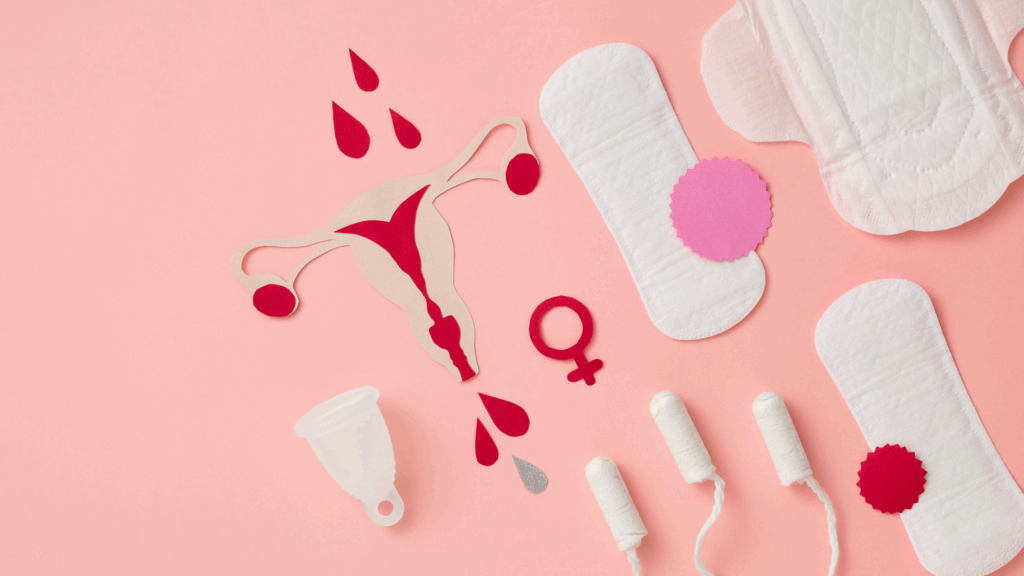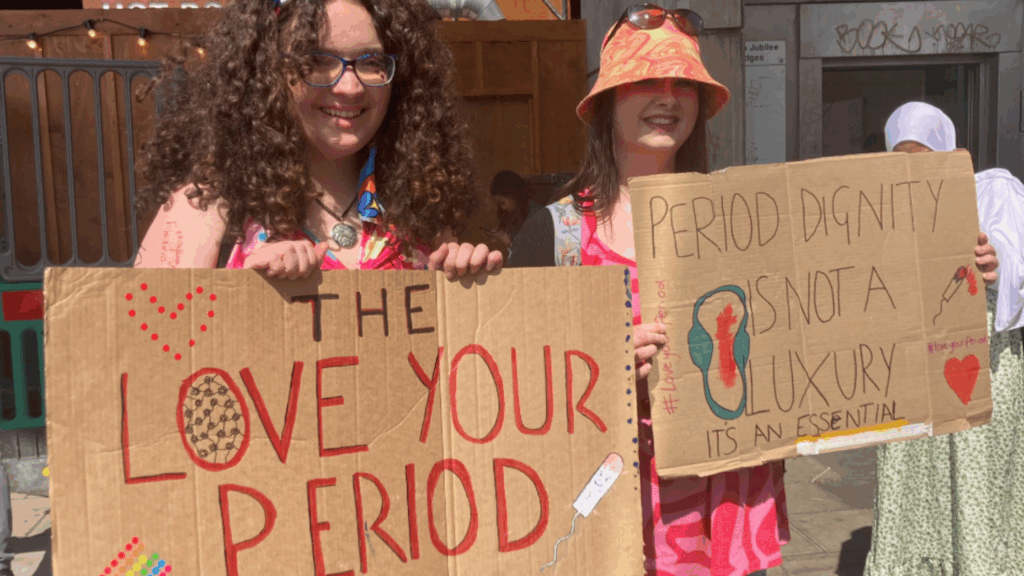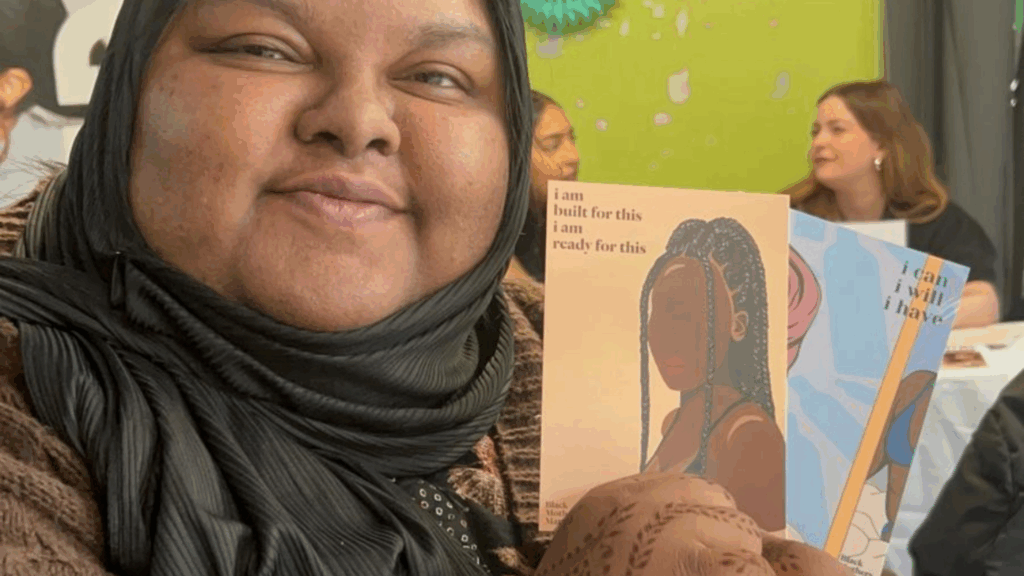Why Are We Still So Weird About Periods?

Let’s be real. For something that happens to nearly half the population, periods are still treated like an embarrassing secret.
This is a guest blog written by Athika Ahmed, a young activist who is part of the Love Your Period Campaign.
Most of us grow up hearing whispers about periods through comments like it’s “that time of the month,” “she’s on it,” or the classic, “don’t talk about it in front of the boys.” And that’s exactly the problem. When we treat periods like something to hide, we make it harder for people, especially young people, to understand their own bodies and speak up when something’s not right.
Lack of education
The stigma around menstruation isn’t just awkward, it’s harmful. It starts young. Many kids get the “bare minimum” education about periods in school, if they get any at all.
Boys are often left completely out of the conversation, while girls get rushed through a 30-ish minute PowerPoint presentation and maybe a free pad or two. That’s not education. That’s a missed opportunity.
Without proper information, a lot of young people think that extreme pain, super heavy bleeding, or irregular cycles are just “part of the deal.” But they’re not.
Conditions like endometriosis and Polycystic Ovary Syndrome (PCOS) are often brushed off or misdiagnosed for years, partly because people are taught to just deal with the pain and not make a fuss.
If no one ever tells you what a healthy period looks like, how are you supposed to know when something’s actually wrong?
Period poverty
Then there’s the issue of period poverty, which barely gets talked about at all. It’s easy to assume that everyone has access to pads or tampons, but that’s far from the truth.
There are people in your own community, like students, single parents and unhoused individuals who cannot afford basic menstrual products. Some end up using toilet paper, socks or cardboard, just to get by. It’s heartbreaking, and it’s happening all around us. But because no one wants to talk about periods in the first place, the people dealing with period poverty often suffer in silence.
Period Dignity
This isn’t just about hygiene products. It’s about dignity, health, and equality. If we really want to support people who menstruate, we have to change how we talk about it. That means ditching the shame, normalising the conversation, and making sure every young person, no matter their gender, understands how periods work and why they matter.
We also need to push for policies that provide free or low-cost menstrual products in schools, shelters, and public spaces. Education is huge, but access is just as important. No one should have to choose between buying lunch and buying a box of tampons.
It’s 2025, and we’re still weird about periods. But we don’t have to be. Let’s open the conversation, start teaching real information, and show up for the people who need it most. Period.


Support from Meic
This is a guest blog written by Athika Ahmed, a young activist part of the Love Your Period Campaign. Read more blogs from the campaign.
Meic want to amplify young people’s voices across Wales, using our platform to co-produce meaningful content that truly reflects their experiences and helps drive positive change. That’s why we’ve teamed up with Love Your Period to create our ‘Love Your Period’ campaign.
The Love Your Period Campaign aims to end period poverty by ensuring free access to menstrual products and to combat period stigma through better education and open conversations. It strives to make periods a normal, accepted topic, ensuring everyone has dignity and support during menstruation.
Affected by anything you read about in this blog? Reach out to our friendly advisors on the Meic helpline. Meic is there for children and young people in Wales to get free information, advice, and advocacy every day from 8am to midnight. We’re someone on your side.





















